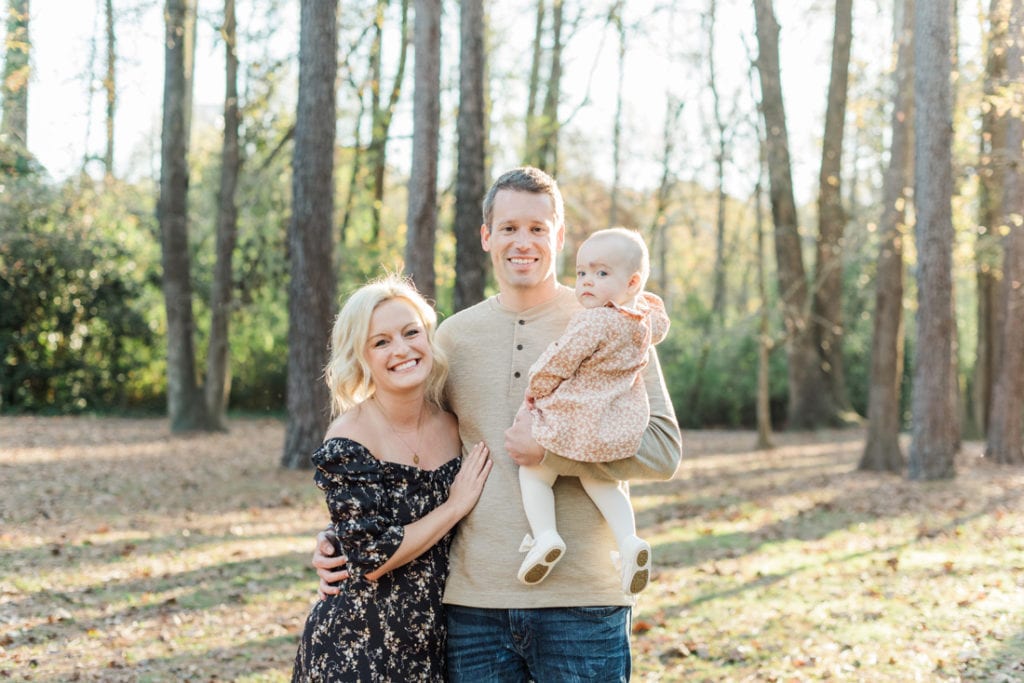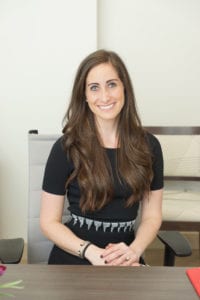TODAY’S REPRODUCTIVE INNOVATIONS OFFER OPTIONS FOR BUILDING A FAMILY.

According to the Pew Research Center, 33% of American adults surveyed have either undergone some type of fertility treatment or know someone who has. There are many reasons for a couple or an individual to try today’s reproductive innovations to build a family. Whether it’s fertility issues or taking a different approach to family planning, an array of medical technology advancements has given people the freedom of choice when it comes to bringing new life into the world.

INFERTILITY: TACKLING A MISNOMER
Dr. Jessica Rubin, a reproductive endocrinologist and fertility specialist with Sandy Springs-based Reproductive Biology Associates, dislikes the word “infertility.” Clinically used to describe people who have not been able to conceive naturally for up to a year, the term can be inaccurate for many people’s situations.
“A lot of these women are able to get pregnant, so it shouldn’t be ‘infertility.’ I think it should be called ‘subfertility,’ when you’re struggling to get pregnant,” she says. “Even though it was termed infertility in medical literature, it can be discouraging to women and couples. They just need help from a fertility specialist.”
For women under 35 who have been trying to conceive for more than a year, as well as women over 35 who have tried for six months, fertility treatments can be the answer. After an evaluation that looks at ovulation, uterine structure, Fallopian tube viability and more, a specialist can design a plan based on a woman’s personal scenario. “The fertility world has advanced, and we have so much more knowledge about the causes of fertility issues and the methods to treat them,” Rubin says.
Traditional fertility treatments include intrauterine insemination (IUI), during which sperm is placed directly into the uterus, or in vitro fertilization (IVF), through which mature eggs are retrieved and fertilized in a lab before being transferred to the uterus. Rubin says the former is more affordable but less successful; IVF is more intensive and expensive but has a higher success rate. The key is to be proactive and see a fertility specialist as soon as you think there might be a problem.
“Don’t struggle alone; let us guide you through the process,” Rubin says. “Infertility can be very emotionally burdensome. However, if you have a game plan and a strategy for how you’re going to go about getting pregnant, it takes off a lot of the pressure, and success will come with that.”
EGG FREEZING: MANAGING THE BIOLOGICAL CLOCK
Egg freezing has become one option for those who want to delay childbearing but preserve fertility. As Rubin says, a woman’s fertility peaks in her 20s, but some are not ready to start a family at that age for any number of personal, financial or medical reasons. “Egg freezing allows women to freeze their eggs and come back to use them decades later—and still have the same reproductive potential from them,” she says.
The two-week process is similar to the early egg retrieval stages of IVF. Eggs are not fertilized but are frozen using a rapid freezing process called vitrification that prevents the formation of ice crystals and yields a 90% egg survival rate when thawed. Technology has made the option more effective, affordable and less stigmatized. In fact, Rubin froze her own eggs in her early 30s and shares her experience with her patients. “It’s incredibly empowering to have that reproductive opportunity— to take control of your fertility and decide when to get pregnant,” she says.
Rubin also notes there are creative ways to build a family. “We can help make this process less stressful and explain all of your options. It’s important to be proactive and not to lose hope. We are here to help.”
THE NUMBERS:
According to FertilityIQ’s national averages, here’s what you can expect to pay:
IUI: Up to $5,000
IVF: Approximately $23,000 per cycle
Egg Freezing: Approximately $17,000
KEEPING THE FAITH
Olivia DeLong knows that the journey to starting a family is not necessarily an easy one. Four years ago, the Brookhaven resident and her husband, Jeff, decided it was their time. On their second month of trying, they got pregnant but sadly lost the baby. They were told that the loss was common, but they were referred to Reproductive Biology Associates since DeLong has a preexisting uterine condition.
“We did everything. We took all of the tests, and we got the big picture,” she says. They worked with reproductive endocrinologist Andrew Toledo, who said they could start with IUI and consider IVF as an option as well. First, he suggested they make lifestyle changes to boost their health, from taking supplements to trying acupuncture. Then DeLong began hormone injections to prepare for the IUI procedure, but she became pregnant naturally with the help of the hormones. Ultimately, it was an unsuccessful chemical pregnancy. After a subsequent IUI attempt failed, they prepared to move on to IVF but became pregnant for a third time before the process began. In December 2018, they lost their son during the 19th week of pregnancy.
A few months later, with the support of Toledo and his fertility team, the De- Longs were pregnant again, naturally. “Something just felt right,” she says, and they were right. Today, they are the parents of a healthy 16-month-old daughter, Amelia.
Though they didn’t conceive through IVF, they experienced the challenges infertility and its treatments present. DeLong encourages couples experiencing similar obstacles. “It was a tough three or four years, but there is hope. You have to be your own health advocate; if you’re not getting answers, find someone who will help you,” she says. “Make sure you have the right people behind you. Parenthood truly is a blessing and something Jeff and I will never take for granted.”
Reproductive Biology Associates
1100 Johnson Ferry Road N.E.
Atlanta 30342
404.257.1900
rbaivf.com
15 Minutes With columnist at Simply Buckhead. Freelance feature writer, children’s book author and President of Green Meadows Communications, LLC.











